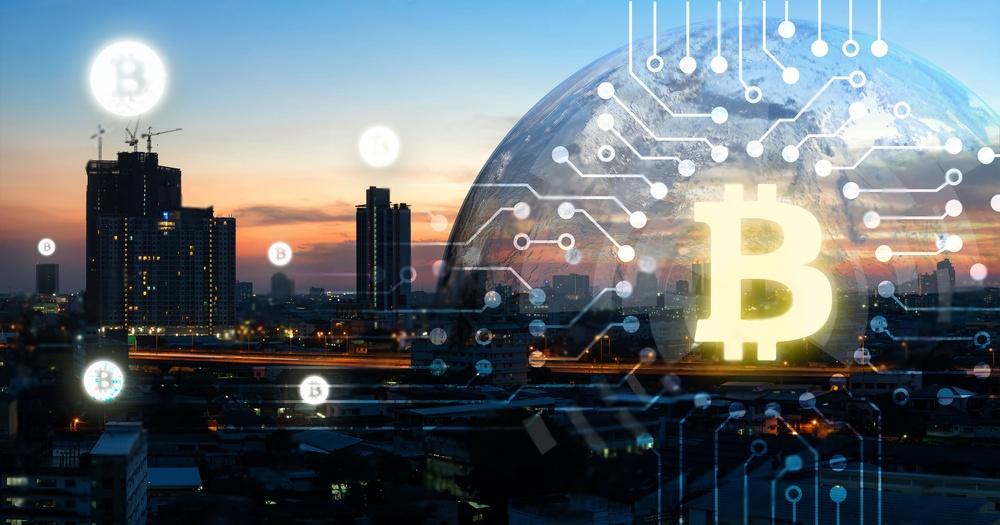The real estate realm, once reliant on traditional methods, now experiences a seismic shift thanks to technological strides. From the futuristic allure of smart homes to the immersive experience of virtual reality, one revolutionary innovation stands out—real estate tokenization. This groundbreaking technology reshapes the landscape of property investment, promising a multitude of benefits for both investors and the market as a whole.
The Game-Changing Potential of Blockchain in Real Estate
Embracing blockchain technology signals a profound transformation in India’s real estate sector, a domain poised to account for 13% of the country’s GDP by 2030, valued at a staggering USD 1 trillion. Traditionally plagued by barriers like steep entry requirements, hefty capital needs, and liquidity challenges, real estate investment in India demanded resilience amidst legal intricacies and taxation hurdles.
Enter blockchain—the catalyst of change. Cyberwalk in Manesar (Gurugram) serves as a prime example. A sprawling 1 million sq. foot property, soon to be tokenized on the DigiByte blockchain by EGW Capital, amplifies the transformative potential. Tokenization not only ushers in annual interests from tenants but also paves the way for leveraging price appreciation—all made possible by these digitized assets listed on supporting exchanges.
Deciphering Blockchain Technology and Real Estate Tokenization
Blockchain, conceived by the enigmatic Satoshi Nakamoto, is more than just a technological marvel. It’s a secure, decentralized network where colossal data resides across multiple nodes, ensuring transparency while safeguarding user identities. Real estate tokenization, on the other hand, involves fractional ownership via blockchain—a process dividing properties into digital tokens, democratizing investment opportunities across residential and commercial real estate.
Benefits That Redefine Property Investment
Increased Liquidity Redefining Accessibility
Traditionally, real estate, burdened by paperwork and capital demands, remained an illiquid asset, accessible mainly to select players. Tokenization rewrites this narrative, fragmenting assets into tradable tokens, enhancing liquidity, and making real estate investment a global affair, open to anyone with internet access and capital.
Unprecedented Access and Transparency
Tokenization dismantles the exclusivity often associated with real estate investment, opening doors to a wider pool of investors worldwide. With transparency etched into every transaction detail within secure, digital tokens, the process becomes cost-effective and intermediaries are minimized, fostering a direct connection between buyers and sellers.
Immutable Ownership Proof and Streamlined Management
Property disputes and management complexities find resolution through tokenization’s immutable ledger, eradicating ambiguity and legal battles. Smart contracts streamline property management, ensuring timely rent collection, document registration, and hastened due diligence—benefits that resonate with both tenants and property owners.
The Hurdles on the Path to Tokenization
Despite its promises, real estate tokenization grapples with regulatory uncertainties, tax complexities, infrastructural gaps, cybersecurity concerns, and substantial energy consumption. This nascent technology demands a robust regulatory framework and heightened digital infrastructure to realize its transformative potential fully.
The Road Ahead: Realizing the Promise of Tokenization
The verdict is clear—real estate tokenization marks a paradigm shift in property investment. For small investors, it unlocks fractional ownership and simplifies entry into the market. For high-net-worth individuals, it offers a versatile portfolio management tool. And for intermediaries, automation streamlines operations, bolsters accuracy, and fortifies security.
The future of real estate tokenization gleams with promise. With the right regulatory framework and technological advancements, fractional ownership could soon become a commonplace term, transforming property investment into a global, accessible endeavor akin to traditional financial instruments like Fixed Deposits and Recurring Deposits in India.
In this intersection of ever-growing land prices and ever-evolving technology, the potential for widespread adoption of fractional ownership seems inevitable—a testament to the seamless synergy between progressive technology and enduring investments in the earth itself.



